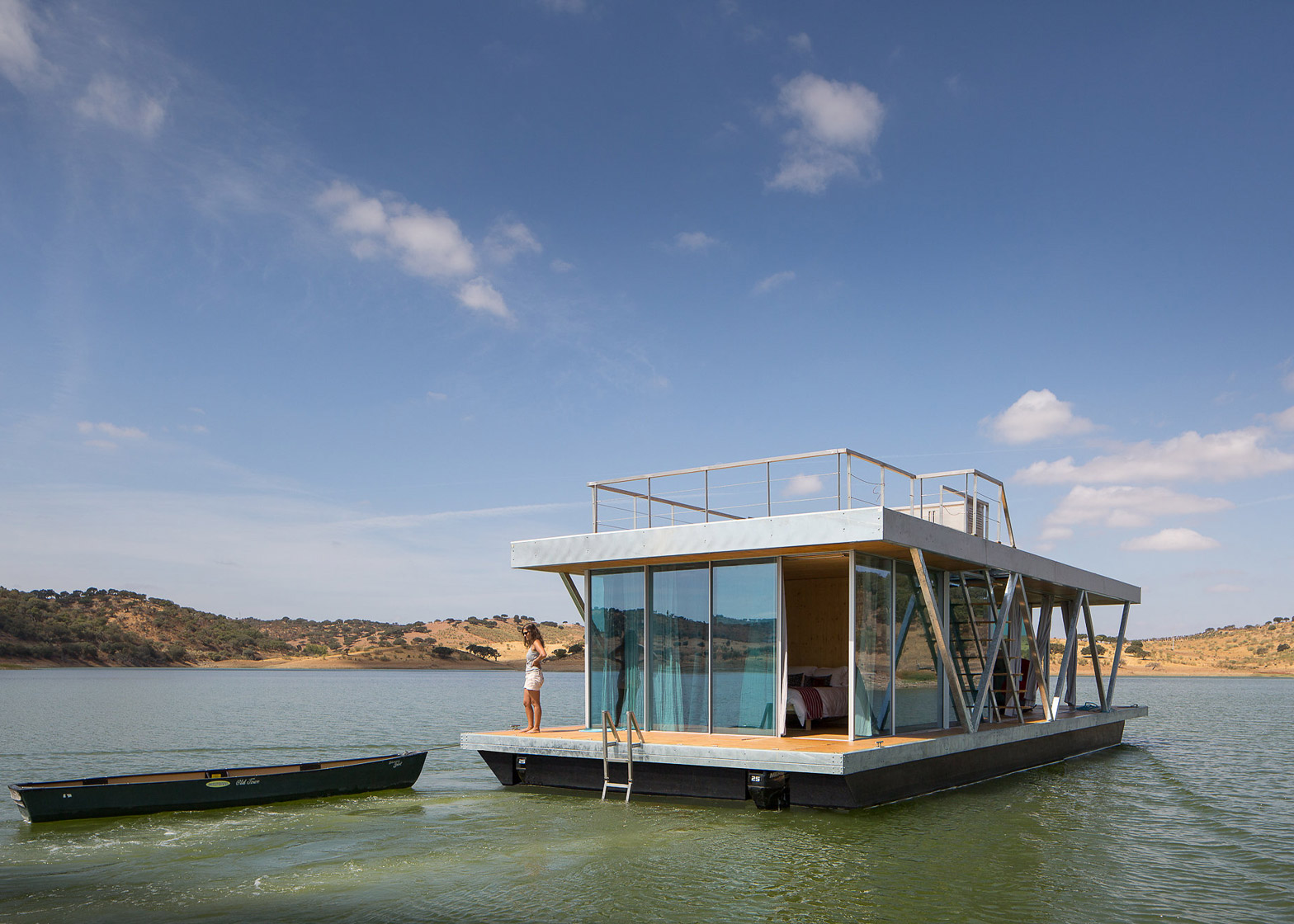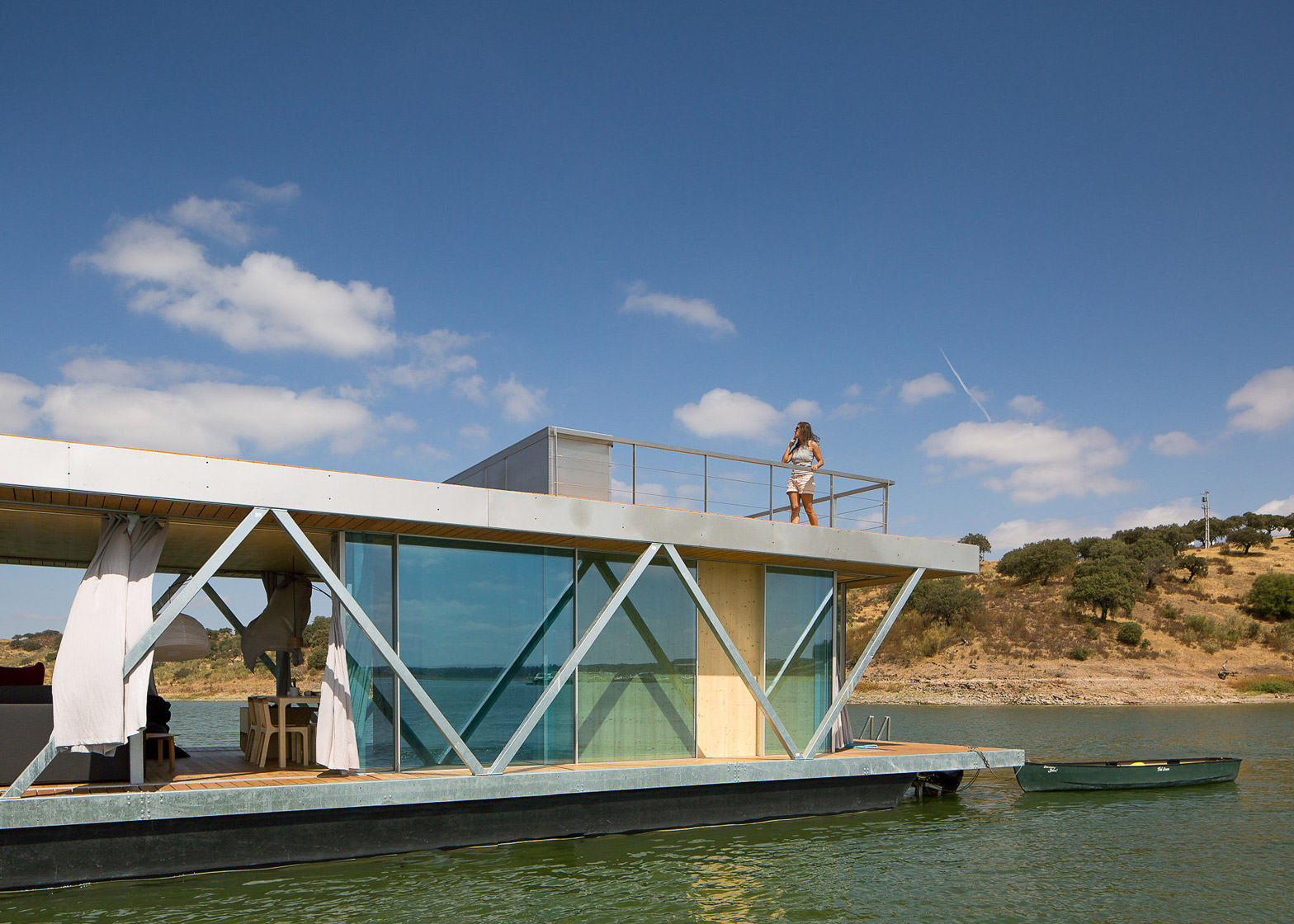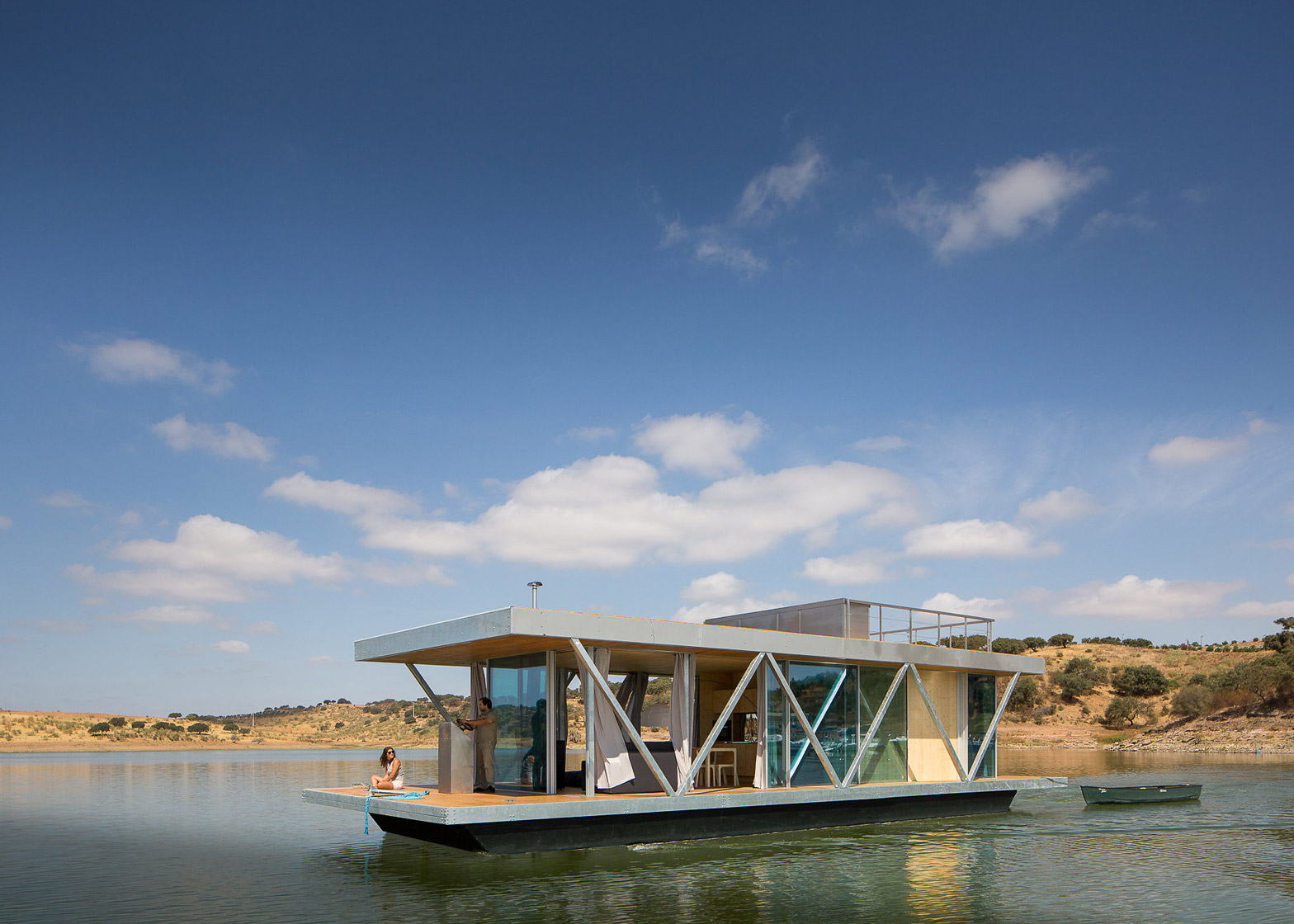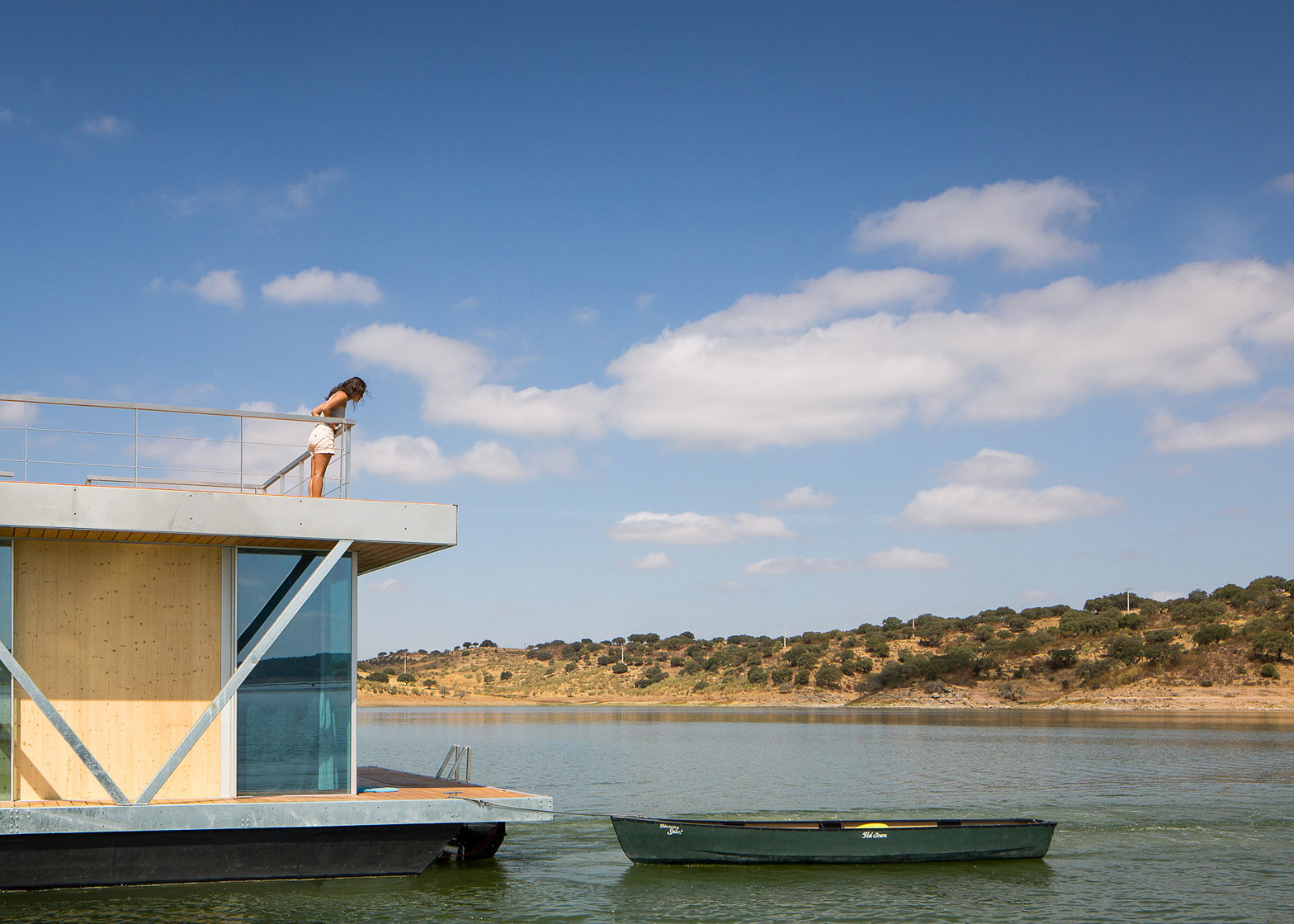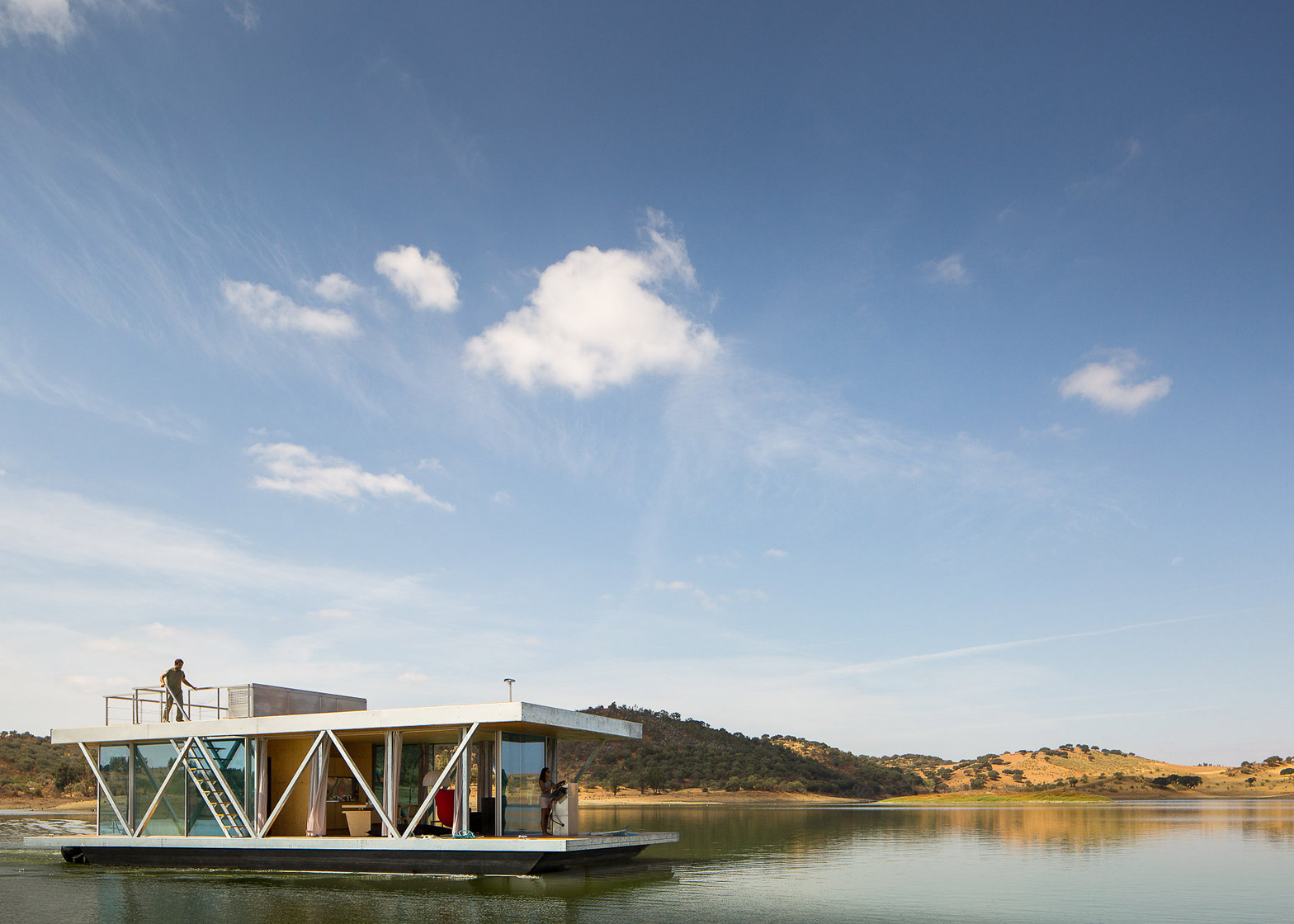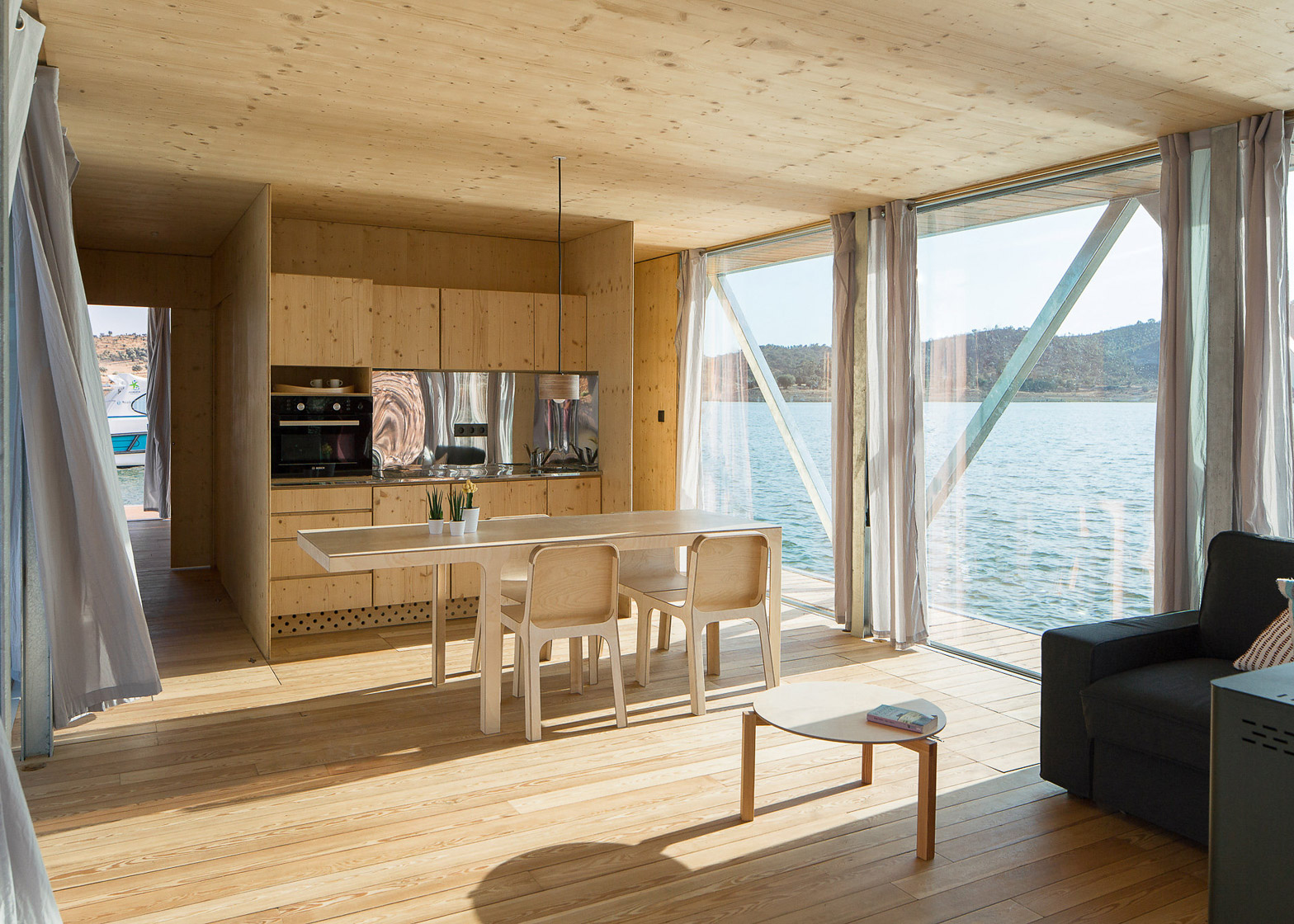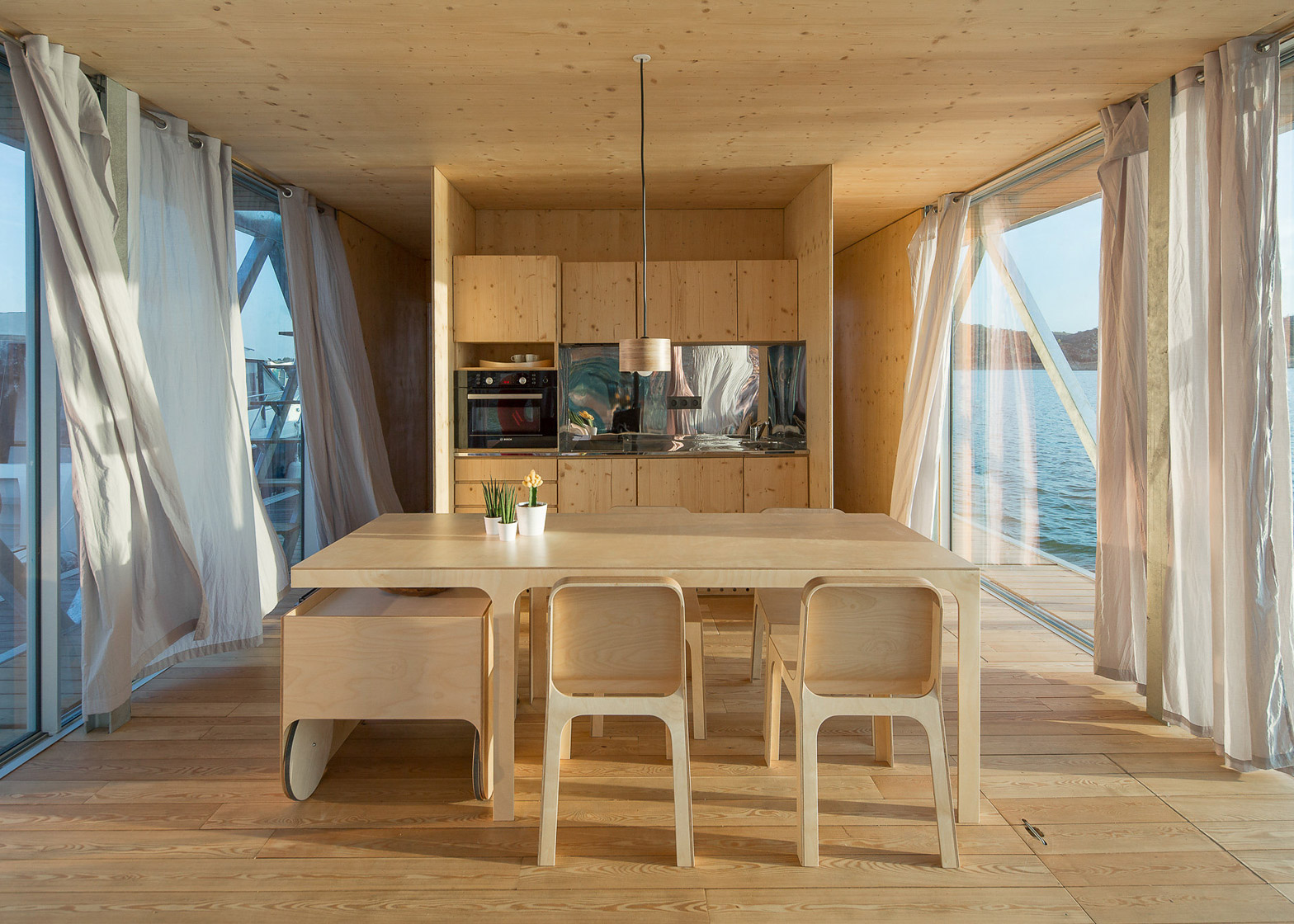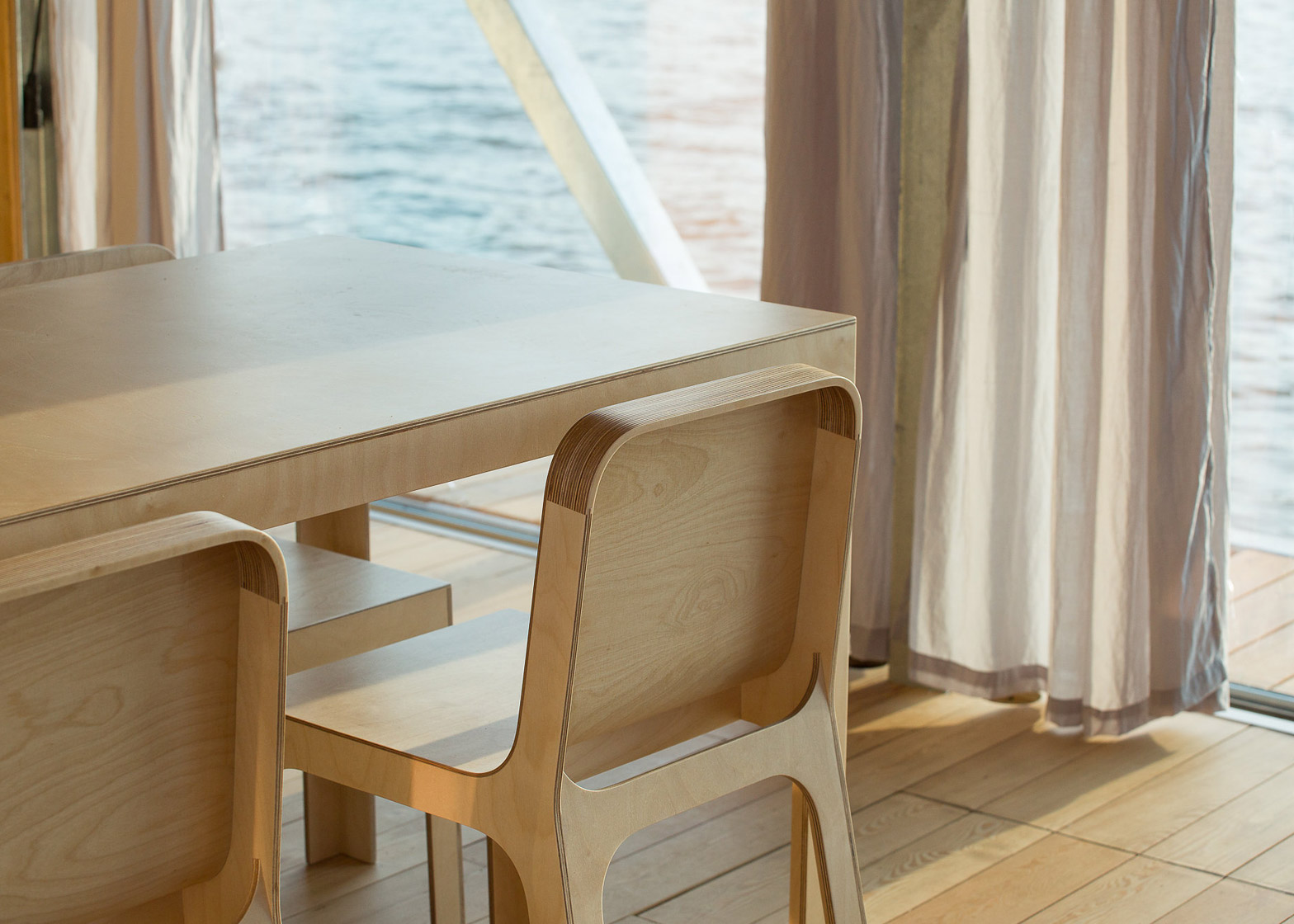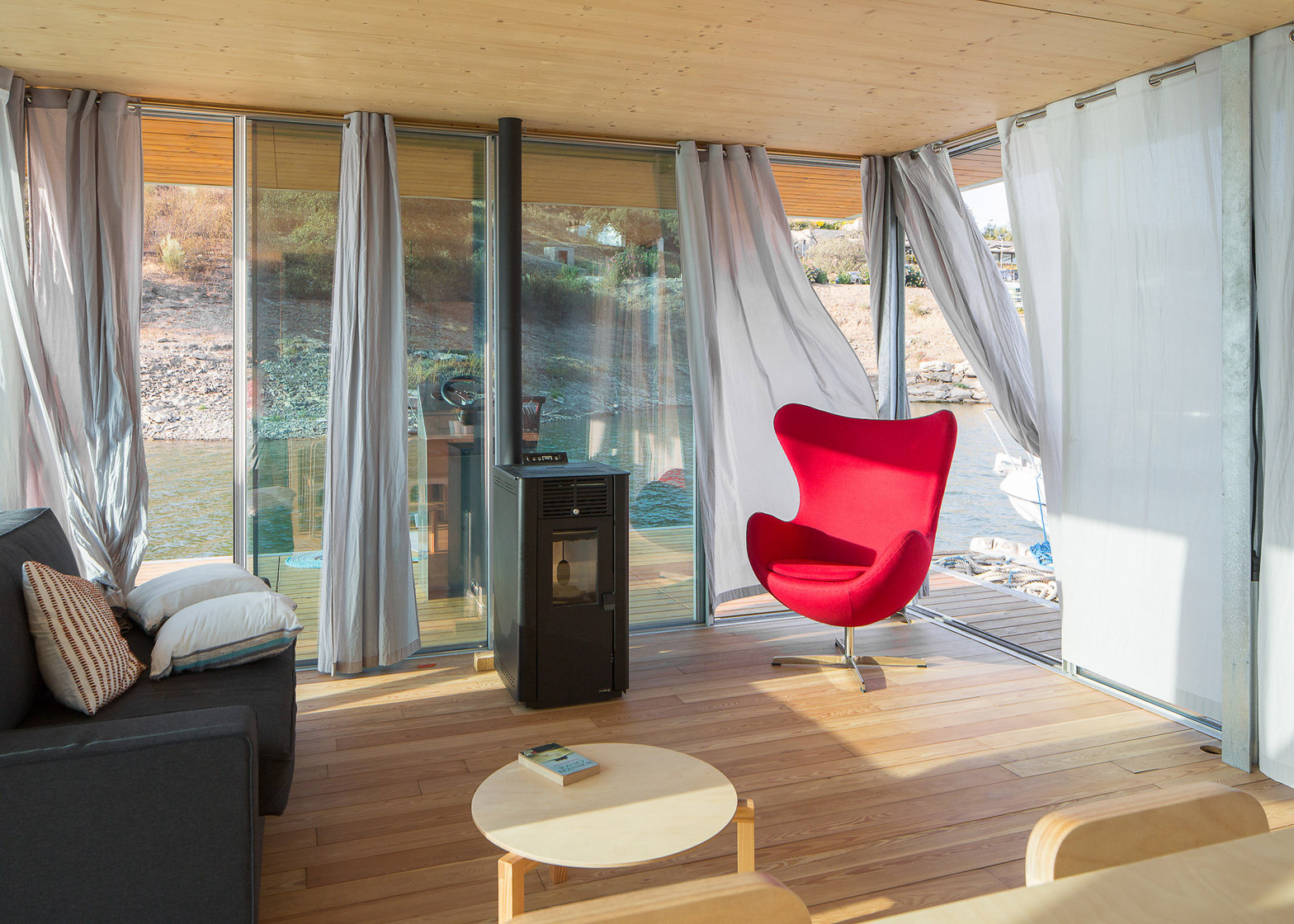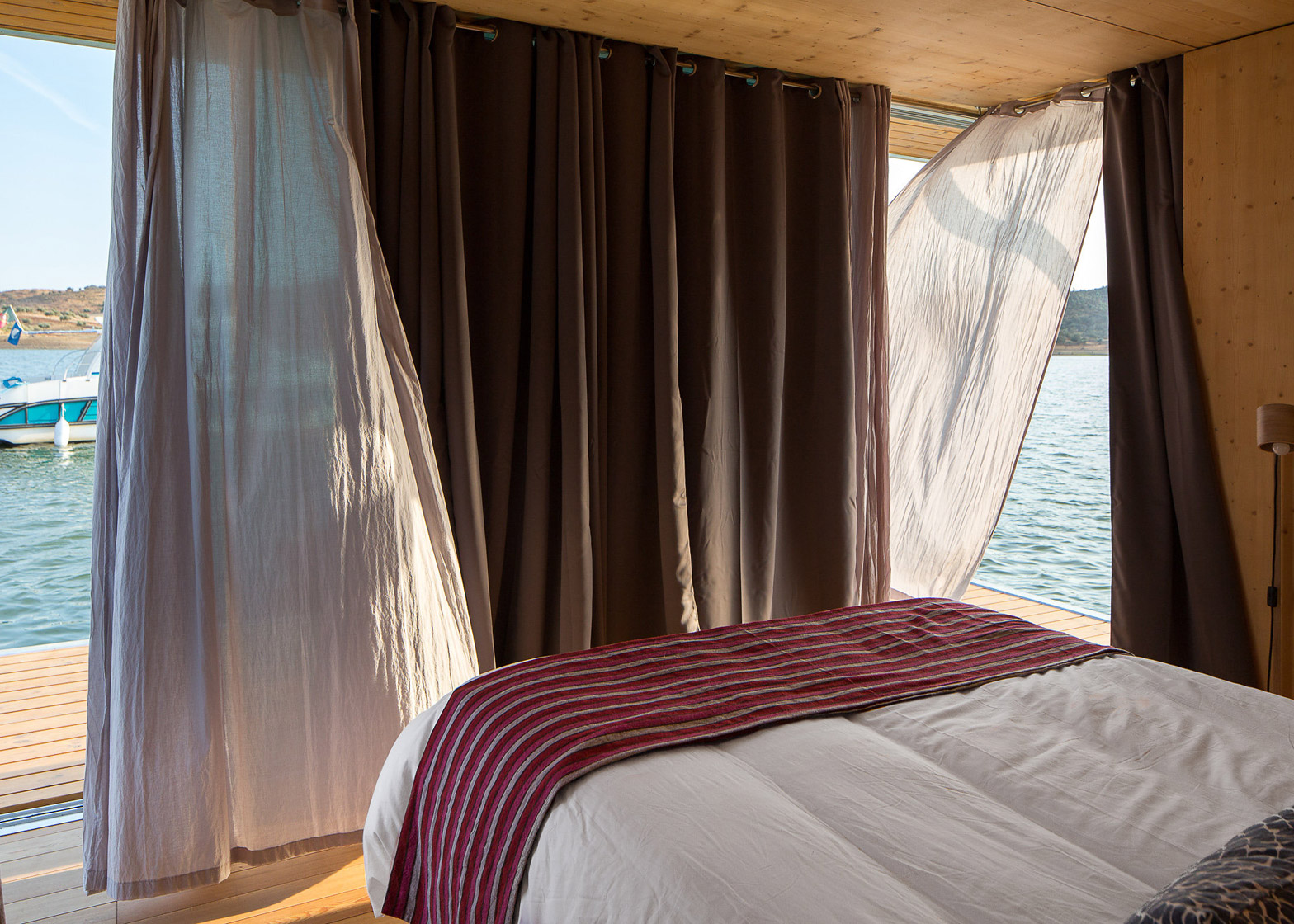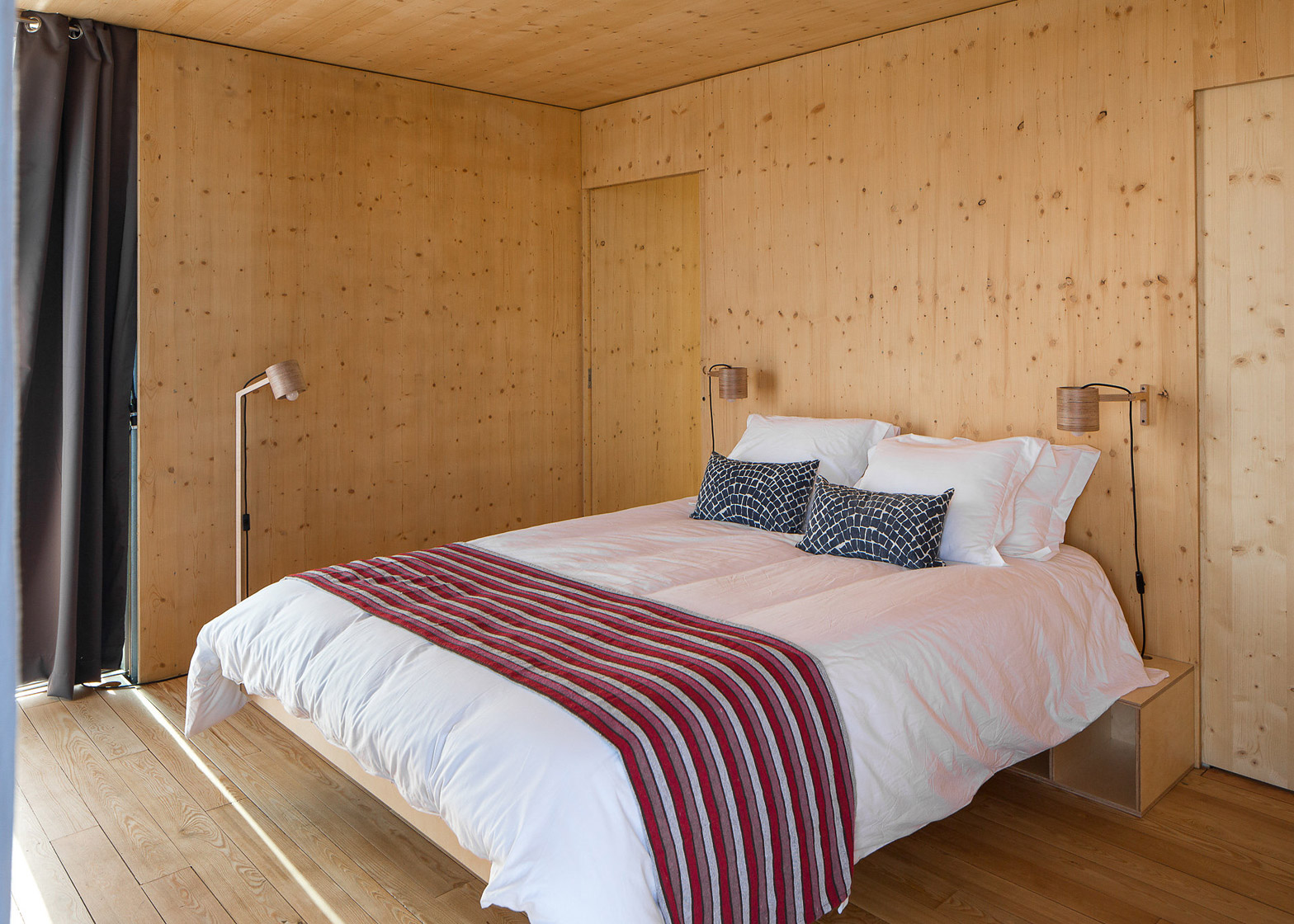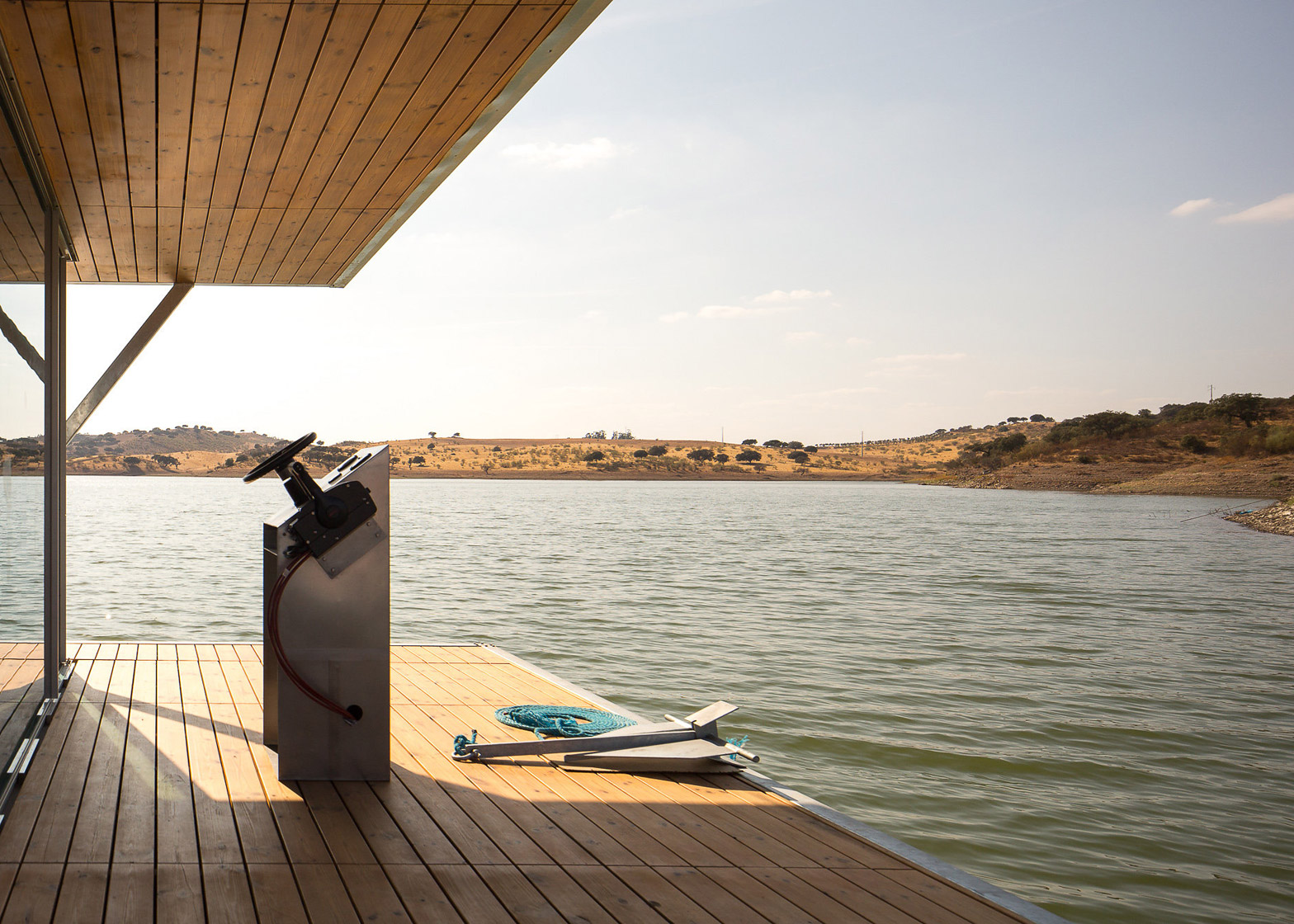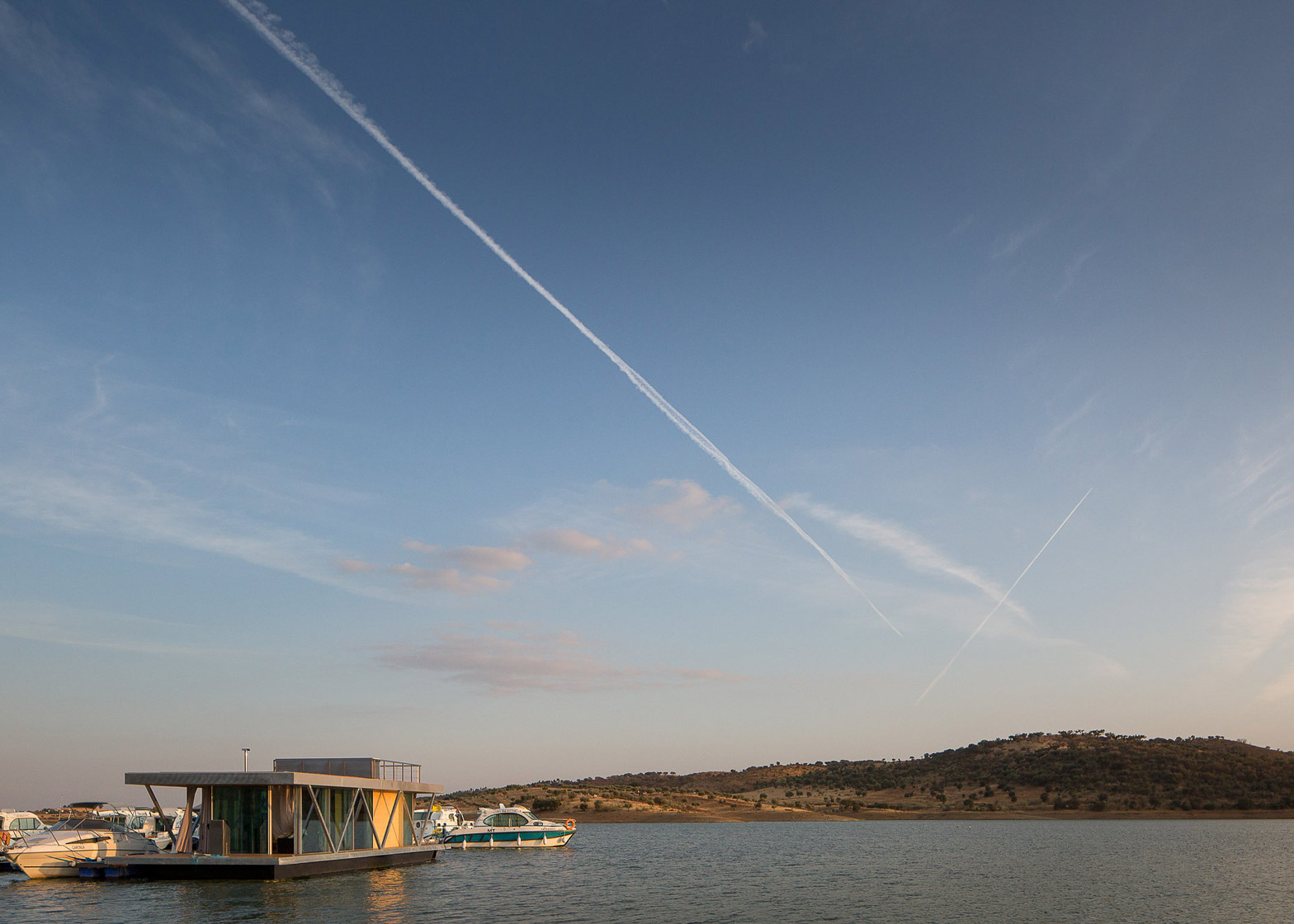A team from the University of Coimbra in Portugal has unveiled the first photographs of a prefabricated floating house that can be built to order and shipped to almost anywhere in the world (+ slideshow).
Named Floatwing, the house is designed to be entirely self-sustainable for up to a week at a time, offering its occupants the chance to take up residence on some of the world's most remote lakes and rivers.
It can be built in a variety of sizes, making it more suitable for different global locations or to accommodate large groups.
"A romantic gateway for two, or a mobile house in the middle of a lake for the entire family or a group of friends, the possibilities are almost endless," said the team, which has rebranded itself under the name Friday.
"Whether you want a cosy studio or a fully furnished three-bedroom house with two bathrooms, the freedom of nature is on your doorstep," it added.
Friday is a spin-off from the University of Coimbra, and its team includes naval architects, engineers, and industrial designers. It is currently working on two ideas for market – the now-built floating house and a conceptual personal submarine.
The company describes its aims as "creating technologically advanced nautical and water related leisure devices and equipment", with a focus on "modularity, personalised client relationships, energy efficiency and environmental sustainability".
Floatwing is designed as a buoyant modular structure – taking a step forward from other prefabricated properties on the market, like the MIMA House and Philippe Starck's PATH series.
It has a fixed width of six metres but a length that can vary between 10 and 18 metres. This makes a variety of layouts possible with the modules, which allow the building to be easily shipped and assembled onsite.
"The modular design of the house means that all its components, including equipment and furniture, can be easily stored in two standard containers and shipped to almost anywhere on the planet," said Friday.
The client can specify the amount of equipment integrated into the house. It can have no motor and be simply towed to a stationary location. With a motor – which would always be powered either partly or in full by solar energy – it can move itself from place to place at a speed of three knots.
Other optional additions include a pellet stove that burns compressed wood or biomass, water and waste tanks with capacity for up to seven days of use, and a wastewater treatment plant that uses activated sludge.
"When charged, the house is self-sufficient for at least seven days," said Friday. "It produces up to 80 per cent of its annual energy needs."
The model house, unveiled at the end of September on the Alqueva Dam, is 16 metres long. Its plan centres around a compact bathroom area, which acts a partition to separate a bedroom on one side from an open-plan living, dining and kitchen space on the other.
Floor-to-ceiling glazing surrounds the whole home, and slides back to provide access to the surrounding deck. There is also an upper deck that can be used for barbecues.
The team chose sustainable low-cost materials wherever possible, so many of the interior surfaces are built from plywood.
Floating homes have long been popular in the Netherlands, where studios including +31 Architects and BYTR Architects have reinvented the traditional houseboat. A similar idea was also recently proposed for London's waterways by Baca Architects.
Photography is by José Campos.

